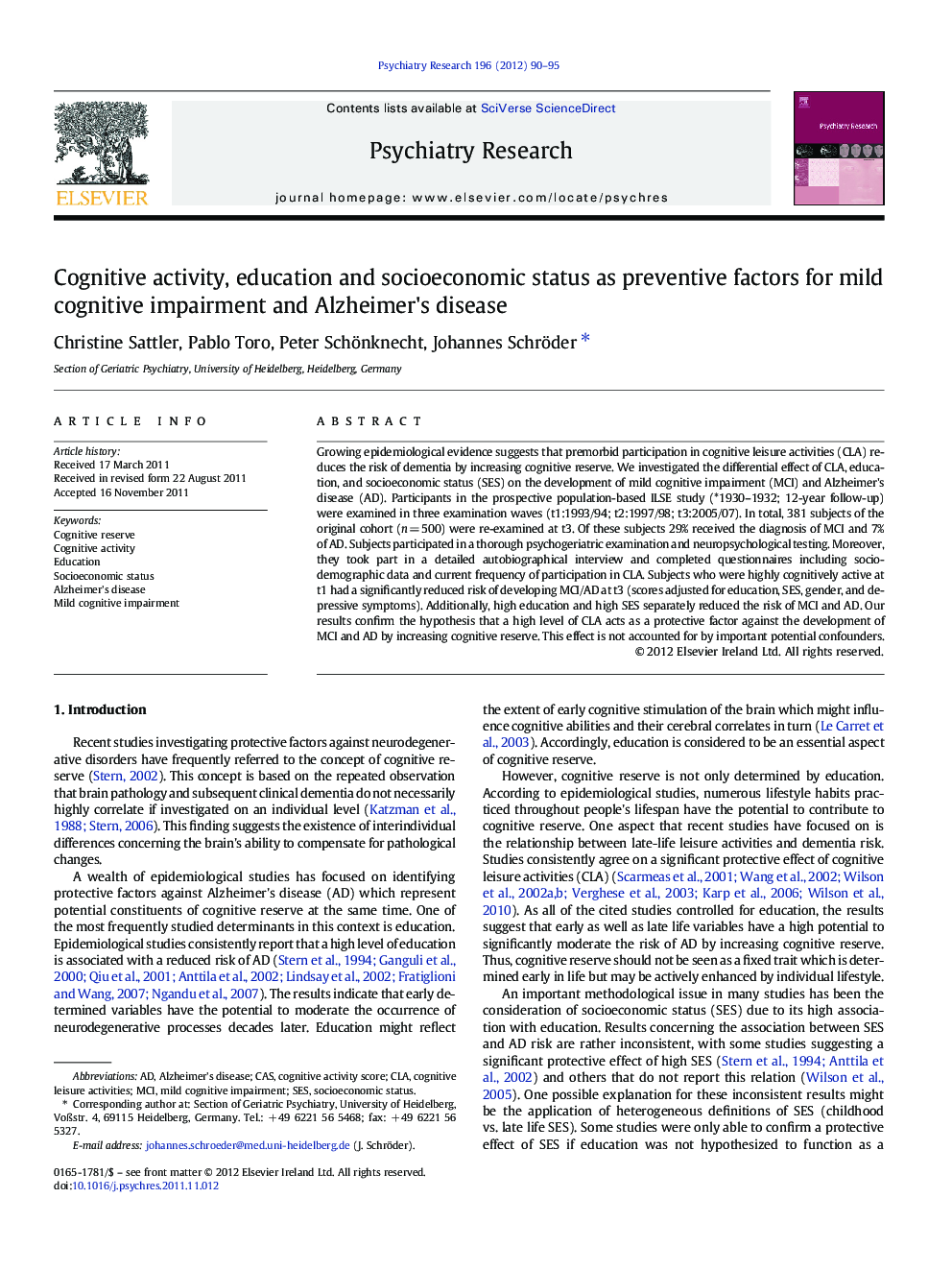| Article ID | Journal | Published Year | Pages | File Type |
|---|---|---|---|---|
| 333515 | Psychiatry Research | 2012 | 6 Pages |
Growing epidemiological evidence suggests that premorbid participation in cognitive leisure activities (CLA) reduces the risk of dementia by increasing cognitive reserve. We investigated the differential effect of CLA, education, and socioeconomic status (SES) on the development of mild cognitive impairment (MCI) and Alzheimer's disease (AD). Participants in the prospective population-based ILSE study (*1930–1932; 12-year follow-up) were examined in three examination waves (t1:1993/94; t2:1997/98; t3:2005/07). In total, 381 subjects of the original cohort (n = 500) were re-examined at t3. Of these subjects 29% received the diagnosis of MCI and 7% of AD. Subjects participated in a thorough psychogeriatric examination and neuropsychological testing. Moreover, they took part in a detailed autobiographical interview and completed questionnaires including socio-demographic data and current frequency of participation in CLA. Subjects who were highly cognitively active at t1 had a significantly reduced risk of developing MCI/AD at t3 (scores adjusted for education, SES, gender, and depressive symptoms). Additionally, high education and high SES separately reduced the risk of MCI and AD. Our results confirm the hypothesis that a high level of CLA acts as a protective factor against the development of MCI and AD by increasing cognitive reserve. This effect is not accounted for by important potential confounders.
